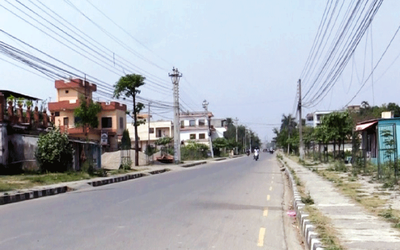
Tom Ginsburg is the Leo Spitz Professor of International Law at the University of Chicago, where he also holds an appointment in the Political Science Department. He holds B.A., J.D. and Ph.D. degrees from the University of California at Berkeley. He currently co-directs the Comparative Constitutions Project, an NSF-funded data set cataloging the world’s constitutions since 1789. His books include The Endurance of National Constitutions (2009) (with Zachary Elkins and James Melton), which won the best book award from Comparative Democratization Section of American Political Science Association; Judicial Review in New Democracies (2003), Administrative Law and Governance in Asia (2008), Rule By Law: The Politics of Courts in Authoritarian Regimes(with Tamir Moustafa, 2008), and Comparative Constitutional Law (with Rosalind Dixon, 2011). He is a member of the American Academy of Arts and Sciences. Before entering law teaching, he served as a legal advisor at the Iran-U.S. Claims Tribunal, The Hague, Netherlands, and he has consulted with numerous international development agencies and governments on legal and constitutional reform. He currently serves a senior advisor on Constitution Building to International IDEA.
Nepal is in the middle of the process of constitution writing and has spent almost all six years. How do you look at the process?
Well of course, the world has been waiting to see the new constitution of Nepal. There were a lot of disappointments as the last Constituent Assembly failed to promulgate the new constitution. One never designed the process this way, one CA failing to promulgate the new constitution and holding the other elections. This CA took a wise decision.
Maybe, it will work out for the best. This CA has decided to take the last constitution as a base and also organize committees to deal with political questions. In some sense, they may be working out in the best way. Of course, they are yet to take many decisions. If Nepal promulgates the new constitution, it will make the rest of the world happy.
As a constitutional expert, how do you see the other aspects of the constitution?
Promulgating the new constitution is just a beginning; the difficult part is its implementation. My research showed that in all the constitutions since 1859, the process is very important and another aspect is how inclusive the constitution is drafted, for example, through the elections of the Constituent Assembly or referendum at the final stage. Many groups need to be included, as much as possible.
Nepal has been debating over the forms of the government over a long period of time. How do you do look at this?
You need to make sure that you need a coherent constitution, either towards a strong president or to lead to the strong parliament. If it is too balanced, there will be a deadlock and probably lead to collapse at the time of cohabitation. It should be a coherent version. Constitution making and reflecting it in draft of the constitution is really about assessing or competing risks.
How do you see the role of state and center?
If there is a strong center, there will be risk of domination of the center and if there is too weak a center, there is risk of incoherence and inability to equalize among provinces. If there is a strong president, there is a risk of autocracy or there is a too weak president, there is a risk of instability and incoherence. So, this is everything about managing risk and trading risk in constitution making. It is much more about art than science. There is no single answer. It is judging about your political context, the demands and the institutions you have which are going to be much stronger and which are going to be most weaker and how you are going to manage them at a time, in negotiations, is going to be a vital in the federalism process.
How do you see the process of deciding the federalism in Nepal?
Well, a step back. One of the characteristics of Nepalese federalism will be different than others as you can have great diversity in terms of economy of different units. You automatically need certain mechanisms transferring wealth among them as you have already central taxation system, customs. When the US started federalism, we didn’t have national taxation system and each state had its own. Our national taxation system was customs. Then we developed a taxation system that became a mechanism for transferring wealth from richer state to poorer state. So that is certainly going to be a factor. In terms of diversity, you had a greater diversity in capability. In this sense, you need a different starting point than we have. The fact is that the expectation is so high that you need to think about it right now.
Is federalism the panacea?
Everyone thinks federalism is the panacea and that is part of the operating environment for the functioning of federal systems. How obviously to make people understand the actual features of the system, what it can do and cannot do is crucially important for Nepalese media. They can generally play a role here. Because we know that the expectation is so high that it will have implications. Thus, there is the need to have education about it and willingness of people to understand the demand made by federal structures. If expectations continue to go higher, that a long standing demand made by people will collapse.
What about the federalism?
Federalism is a governance of compromise and you need to have a functional government at the center. There will be more disputes and there is the need to have mechanisms to settle such issues.
How do you see the possibility of making ethnic based federalism?
Federalism is all about geographic entities. Federalism is a shared rule and self rule. If you go federal without understanding federalism, it will create more problems. Nepal needs to have a Nepal model based on its geography, culture and religion.
How do you see the question of resources?
The resources question is very crucial in a federal structure. I am really worried about it. To Nepal, first of all, you need to decide what the state would do and what state would like. If resources like water lie in other states, others cannot do anything on it, he or she doesn’t have access to it. If a state completely controls the resources which could be detrimental for national economy, it will invite more dangers. Internal protectionism is a big danger. First of all you need a common market and the center would be the guarantor of common market. But, the issue of resources is very delicate and the reason people want federalism to control the resources not a central government says we want to chop down the trees.
What about the control of resources?
If the resources are left to the complete control of the state, it is really bad and that will create tensions and it will be protectionism and if it is left completely in control over the center, it is bad as well. So there is the need to classify the resource by resource. For example, there is the need to have national water plan implemented by the state in a cooperative way and the money will flow from the center to the various regions. Upper house of parliament can play an important role in making federalism functional, presumably the provinces will be represented there. It represents the voice of the units and it will create the environment to trust the center to manage the wealth and revenue state with the state.
If the state goes bankrupt, what will be the implications?
State cannot go bankrupt in the United States. Just this year the Supreme Court of the United States has decided that the city could go bankrupt as the city gets all the authority from the state. Some states have very bad fiscal positions as many promise a pension. For instance, my own state Illinois is one which is not good in a fiscal position. They borrow more and citizens need to pay more taxes. I would not blame it for federalism as it is just a problem of bad financial management which could happen with central government also.
At a time when CA members have been talking about the need to have a mixed form of governance, will it be viable for a country like Nepal?
It is a question of power. I recommend that there is the need to have a strong executive whether it is president or parliament. In federal structures, central authority is very important. One cannot expect the defunct and weak government. Mixed system is not a panacea and it may create problems sometimes.
What about the judiciary?
You need to have strong and independent judiciary which can settle the disputes during the time of dispute between the state and center. Supreme Court needs to be given the power to decide on the disputes between the state and center.
- TANAHU HYDROPOWER PROEJCT: A Significant Achievement
- Apr 15, 2024
- AMBASSADOR HANAN GODAR: Sharing Pain With A Nepali Family
- Mar 30, 2024
- VISIT OF KfW AND EIB TO NEPAL : Mission Matters
- Mar 25, 2024
- NEPAL BRITAIN SOCIETY: Pratima Pande's Leadership
- Mar 24, 2024
- NEPAL ARMY DAY: Time To Recall Glory
- Mar 15, 2024
















